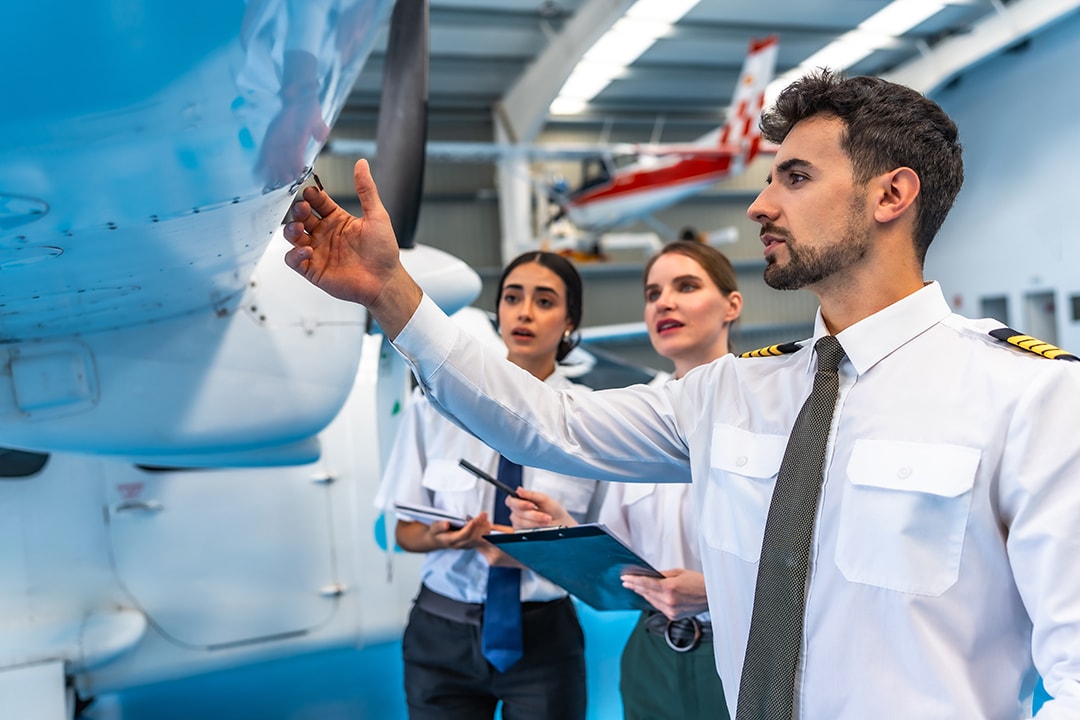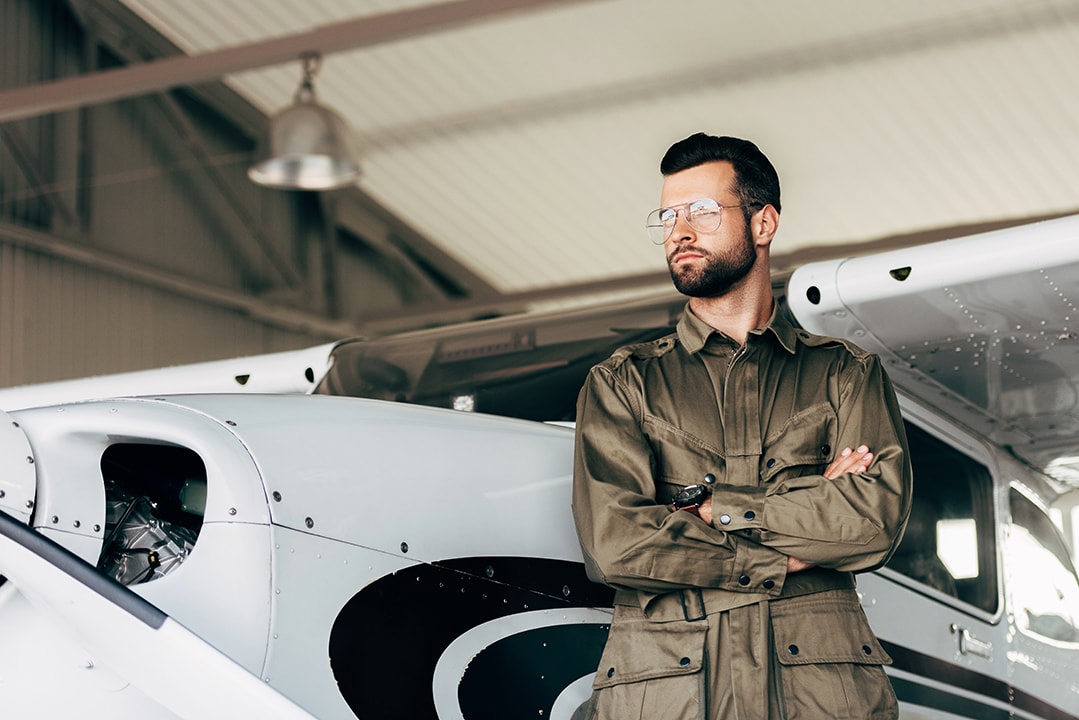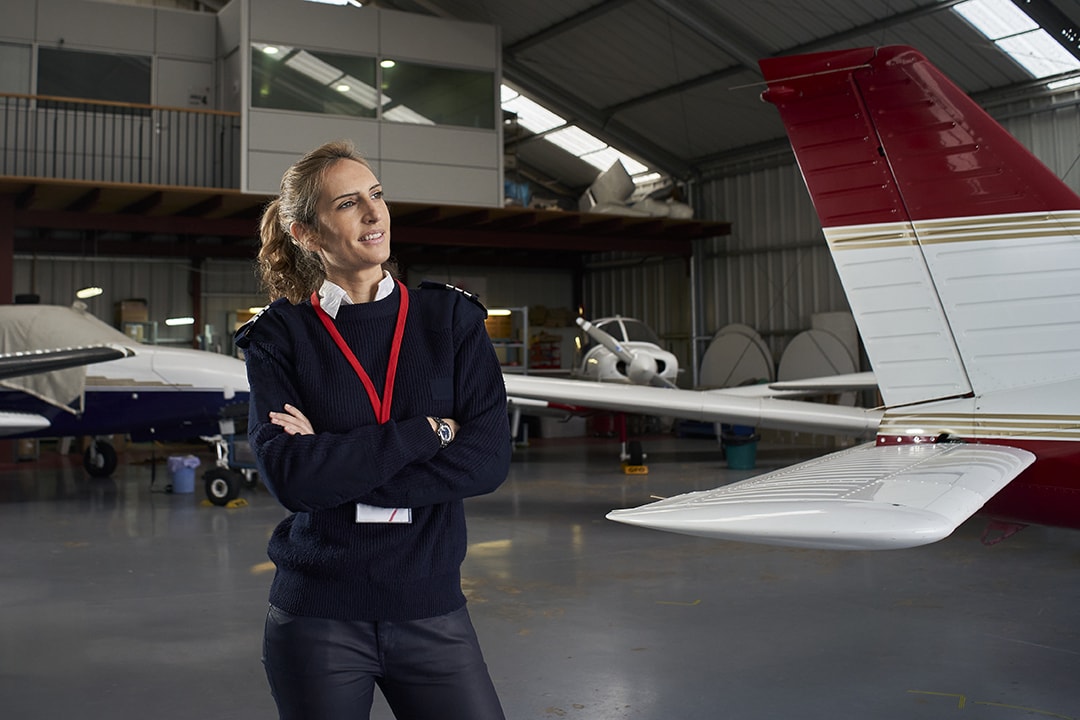Pilots Degree: Requirements and Benefits Explained
Sep 23, 2025
Considering a pilots degree? Discover how earning this specialized aviation degree can launch your career in the skies.
From flight training essentials to academic requirements and career benefits, this guide covers everything you need to know to become a professional pilot and soar to new heights in the aviation industry.
Introduction to Flight Training and Licensing
Flight training is the essential first step for anyone aspiring to become a professional pilot. It involves learning the fundamental skills required to operate an aircraft safely and efficiently, guided by the regulations set by the Federal Aviation Administration (FAA).
Aspiring pilots begin with ground school, where they study aviation theory, navigation, weather, and safety procedures, before progressing to hands-on flight training.
For those who prefer flexible learning options, exploring the best online ground schools can provide a solid theoretical foundation before stepping into the cockpit.
This practical experience includes mastering takeoff, landing, in-flight maneuvers, and emergency protocols under the supervision of certified flight instructors many of whom hold a flight instructor certificate issued by the FAA.
Flight training programs vary in length and intensity but are designed to equip students with the knowledge and skills necessary to earn their private pilot license, which is the foundation for all further pilot certifications.
As pilots advance in their training, they can pursue additional licenses such as the commercial pilot certificate, which qualifies them to be compensated for flying. This certification requires a higher level of flight experience, knowledge, and proficiency, including cross-country flights, night flying, and instrument training.
The aviation industry highly values flight experience and comprehensive training, as these elements ensure safety and competence in the skies. Beyond pilot licenses, career opportunities abound, including roles as airline pilots, corporate pilots, flight instructors, and flight engineers.
Understanding FAA regulations and maintaining compliance with aviation law are critical throughout a pilot’s career.
Whether you aim to fly for major airlines, in general aviation, or through pilot training USAF, a solid foundation in flight training and licensing is crucial to preparing for a successful and rewarding career in the aviation industry.
Academic Requirements
To become a professional pilot, earning a bachelor’s degree in aviation or a closely related field is highly recommended. This degree provides a comprehensive foundation in both theoretical knowledge and practical skills essential for a successful career in the aviation industry.
Coursework typically covers aviation operations, aviation law, safety procedures, and management principles, equipping students with a well-rounded understanding of the field.
Completing flight courses and FAA-approved training programs is a critical component of the academic journey, ensuring that students meet the rigorous standards set by the Federal Aviation Administration.
These programs emphasize accumulating necessary flight hours and mastering essential skills to qualify for certifications such as the private pilot license and commercial pilot certificate.
Beyond technical flight training, a professional pilot degree enhances career opportunities and earning potential by demonstrating a commitment to education and industry standards. Graduates gain valuable expertise in areas like aviation safety, navigation, and aircraft systems, which are crucial for handling complex flight operations.
Additionally, having a degree opens doors to advanced roles within the aviation sector, including positions with major airlines, corporate aviation, and flight instruction.
The combination of academic achievement and comprehensive flight experience prepares pilots to meet the evolving demands of the aviation industry, making them eligible for various certifications and highly competitive in the job market.
Pursuing a professional pilot degree is a strategic step toward a rewarding and sustainable career in aviation.
How to Choose a Flight School for Beginners

Choosing the right flight school is a crucial first step for anyone beginning their journey to earn a professional pilot degree. When researching flight schools, it’s important to compare various programs based on several key factors.
Look into the qualifications and experience of the faculty, as skilled instructors can significantly impact your learning and flight training quality. Evaluate the school’s equipment and aircraft fleet to ensure they are modern, well-maintained, and meet safety standards.
Location also matters; selecting a flight school near major airports or a campus with good access to airspace can provide better training opportunities.
Additionally, consider the overall reputation of the school within the aviation industry, as this can influence your career prospects after graduation.
Cost is another major consideration when selecting a flight school. Flight training can be expensive, so it’s essential to find a program that fits your budget while still offering comprehensive instruction and support.
Confirm that the school is certified by the Federal Aviation Administration (FAA) and maintains a strong safety record, which ensures compliance with federal regulations and a commitment to student safety.
Ask about the school’s job placement rates and career services, as a strong professional pilot program will actively support graduates in finding employment with airlines or other aviation organizations.
By thoroughly researching these factors, aspiring pilots can make an informed decision that sets them on a successful path toward earning their commercial pilot certificate and launching a rewarding career in the aviation industry.
Career Opportunities
The aviation industry offers a wide range of exciting career opportunities for individuals who earn a professional pilot degree. Graduates can pursue roles as airline pilots, where they operate commercial flights for major and regional airlines, ensuring passenger safety and efficient flight operations.
Flight instructors are another popular career path, providing essential training and mentorship to new pilots as they earn their private pilot licenses and advance through additional certifications.
Additionally, opportunities exist for those interested in working as flight engineers, who manage aircraft systems and support pilots during complex operations.
Aviation management roles also attract professionals who want to oversee airport operations, airline logistics, or aviation safety programs, combining their knowledge of flight training with business and leadership skills.
Understanding job requirements and qualifications is crucial for success in these careers. Most aviation roles require a commercial pilot certificate and a minimum number of flight hours, often complemented by a bachelor’s degree in aviation or a related field.
Staying informed about labor statistics and employment trends helps aspiring pilots and aviation professionals make strategic decisions about their career paths.
Networking with industry professionals through associations, conferences, and mentorship programs provides valuable insights and opens doors to job opportunities.
As the aviation industry continues to grow, driven by increasing travel demand and technological advancements, those with a professional pilot degree and comprehensive flight experience are well-positioned to enjoy rewarding careers with competitive salaries and strong job security.
Airline Pilot Requirements

Becoming an airline pilot requires meeting a comprehensive set of qualifications and certifications, with the Restricted Airline Transport Pilot (R-ATP) certificate being a key milestone.
This certification allows pilots to fly for commercial airlines at a younger age, typically after accumulating 1,000 flight hours, compared to the traditional 1,500 hours required for the full ATP certificate.
To qualify, aspiring airline pilots must complete rigorous flight training, including cross-country and instrument flight experience, and pass both written and practical examinations administered by the Federal Aviation Administration (FAA).
Beyond technical skills, candidates must demonstrate a strong academic background, often holding a bachelor’s degree in aviation or a related field, which enhances their understanding of aviation operations, safety protocols, and industry regulations.
In addition to certifications and education, airline pilots must develop critical skills such as crew resource management, effective communication, and a thorough knowledge of aviation law to ensure safe and efficient flight operations.
Physical and mental fitness are also essential, as pilots must hold a valid FAA medical certificate that confirms they meet stringent health standards. The demands of the profession require pilots to maintain sharp decision-making abilities and situational awareness in high-pressure environments.
Airlines also place great emphasis on experience and professionalism, seeking pilots who can adapt to rapidly changing conditions and uphold the highest standards of safety.
Meeting these requirements positions pilots for successful careers with major airlines and opens doors to various opportunities within the aviation industry.
Earning Potential and Benefits

Pursuing a career as a professional pilot offers attractive earning potential and a variety of benefits that make the aviation industry an appealing choice for many. Salaries for airline pilots, flight instructors, and other aviation professionals have seen steady growth, reflecting the high demand for skilled pilots worldwide.
According to the latest data from the U.S. Bureau of Labor Statistics in 2024, the median annual wage for airline pilots and flight engineers is approximately $225,000, while commercial pilots earn a median salary of around $120,000.
Beyond competitive pay, pilots often enjoy additional perks such as travel benefits, flexible schedules, and comprehensive health and retirement plans.
These advantages contribute to a rewarding lifestyle that combines financial stability with the excitement of working in a dynamic and fast-paced industry.
In addition to financial rewards, a career in aviation provides significant opportunities for professional growth and development. The aviation industry values continuing education and recurrent training to keep pilots up-to-date with evolving technology, safety regulations, and operational procedures.
Earning a bachelor’s degree in aviation or a related field further enhances a pilot’s qualifications, opening doors to advanced positions such as airline captain, flight instructor, or aviation management roles.
A professional pilot degree not only increases earning potential but also strengthens job security in a competitive job market.
As the global demand for air travel rises, pilots with comprehensive training, FAA certifications, and academic credentials are well-positioned to enjoy long-term career success and advancement within the aviation industry.
Conclusion
In summary, earning a pilot’s degree is a comprehensive journey that combines rigorous flight training, academic coursework, and hands-on experience to prepare you for a successful career in the aviation industry.
Understanding the requirements, from obtaining a private pilot license to advancing through commercial and airline transport pilot certifications, is crucial for achieving your professional goals.
As you consider your next steps, take time to research accredited flight schools and professional pilot programs that offer FAA-approved training and strong industry connections.
Reflect on the benefits of earning a bachelor’s degree in aviation, which not only enhances your knowledge of aviation operations, safety, and management but also increases your competitiveness in a growing job market.
Utilize available resources such as online courses, industry events, mentorship opportunities, and financial aid options to support your education and career development.
Whether you are just starting or looking to advance your skills, taking proactive steps like applying to a reputable program or consulting with an aviation advisor will set you on the path to a rewarding and dynamic career in aviation, equipped to meet the demands of 2025 and beyond.

